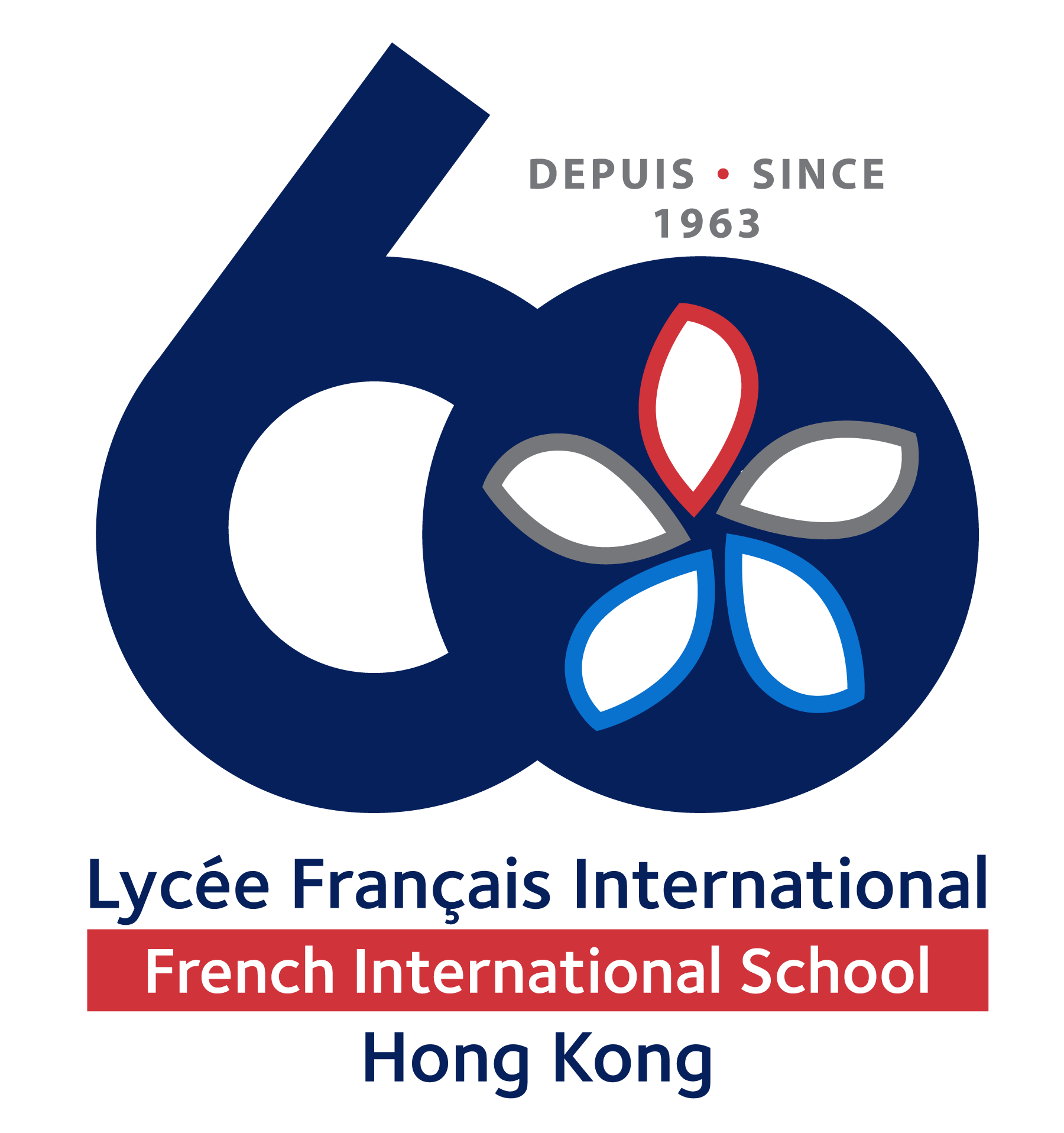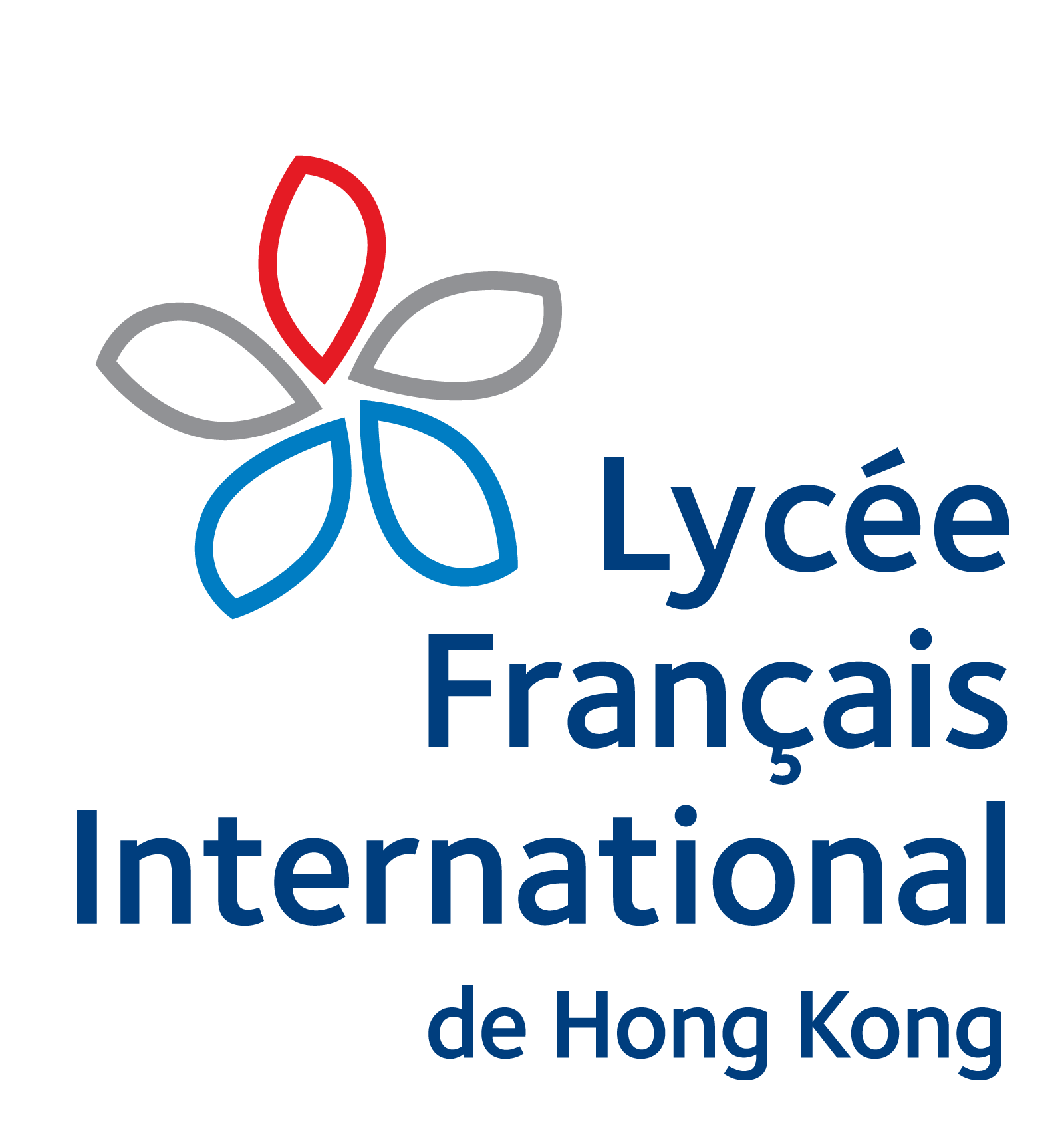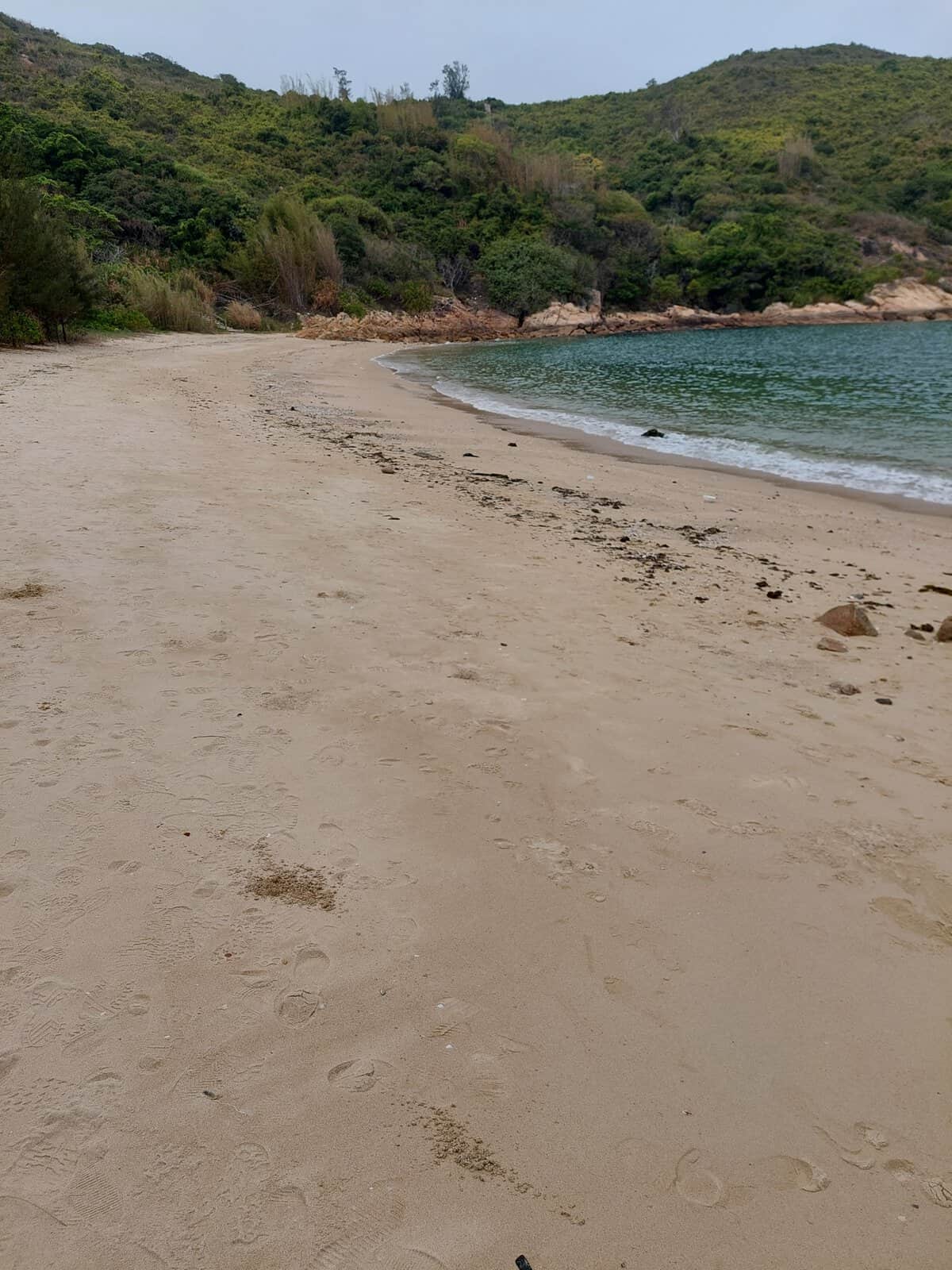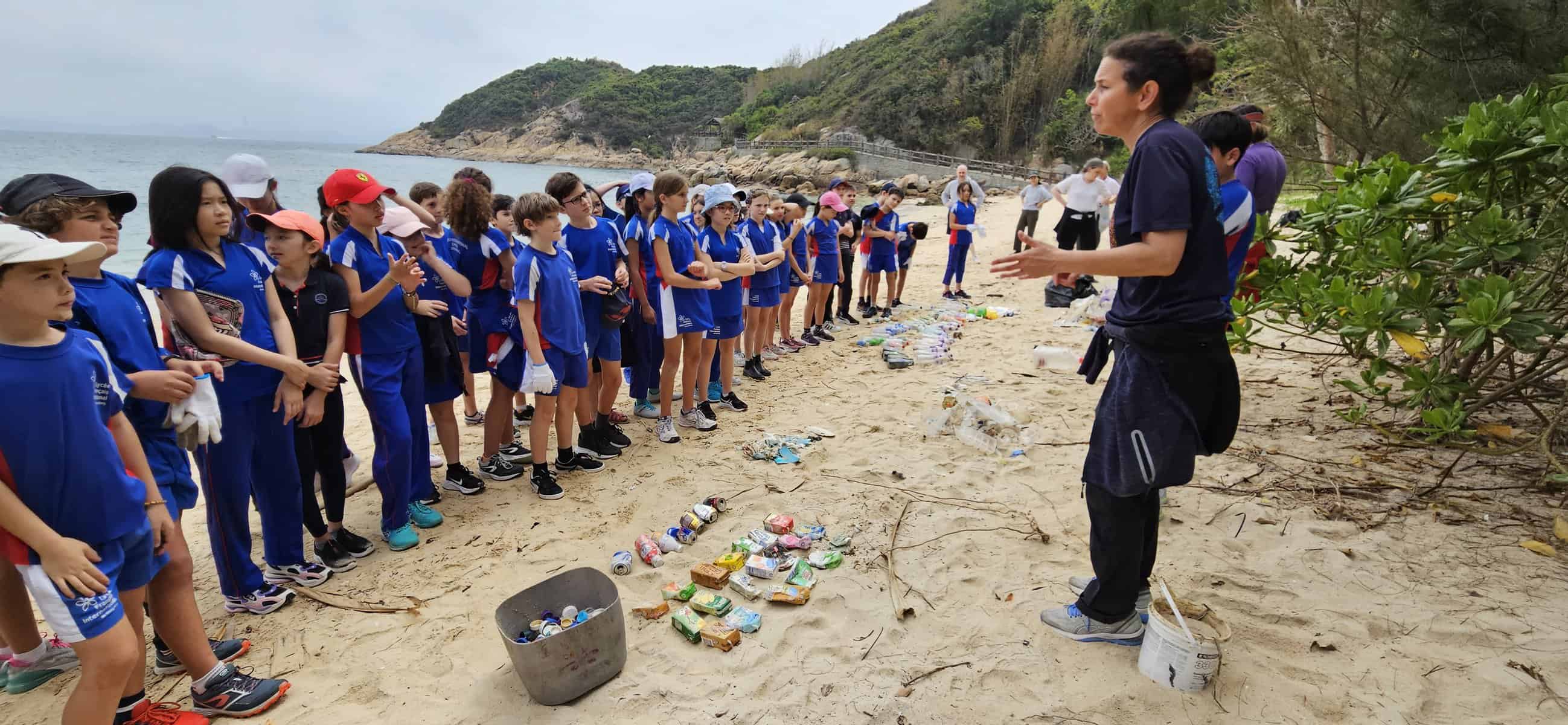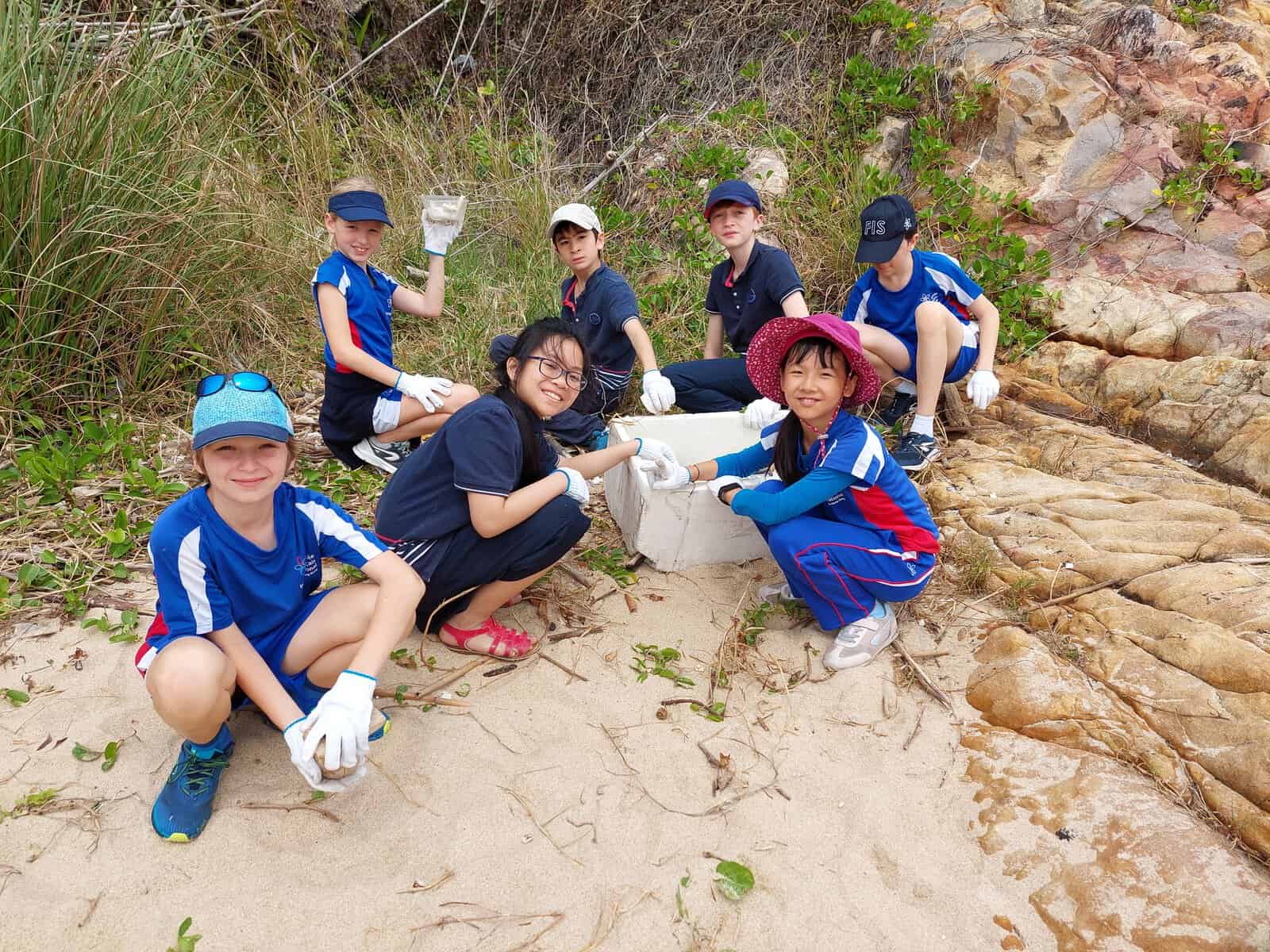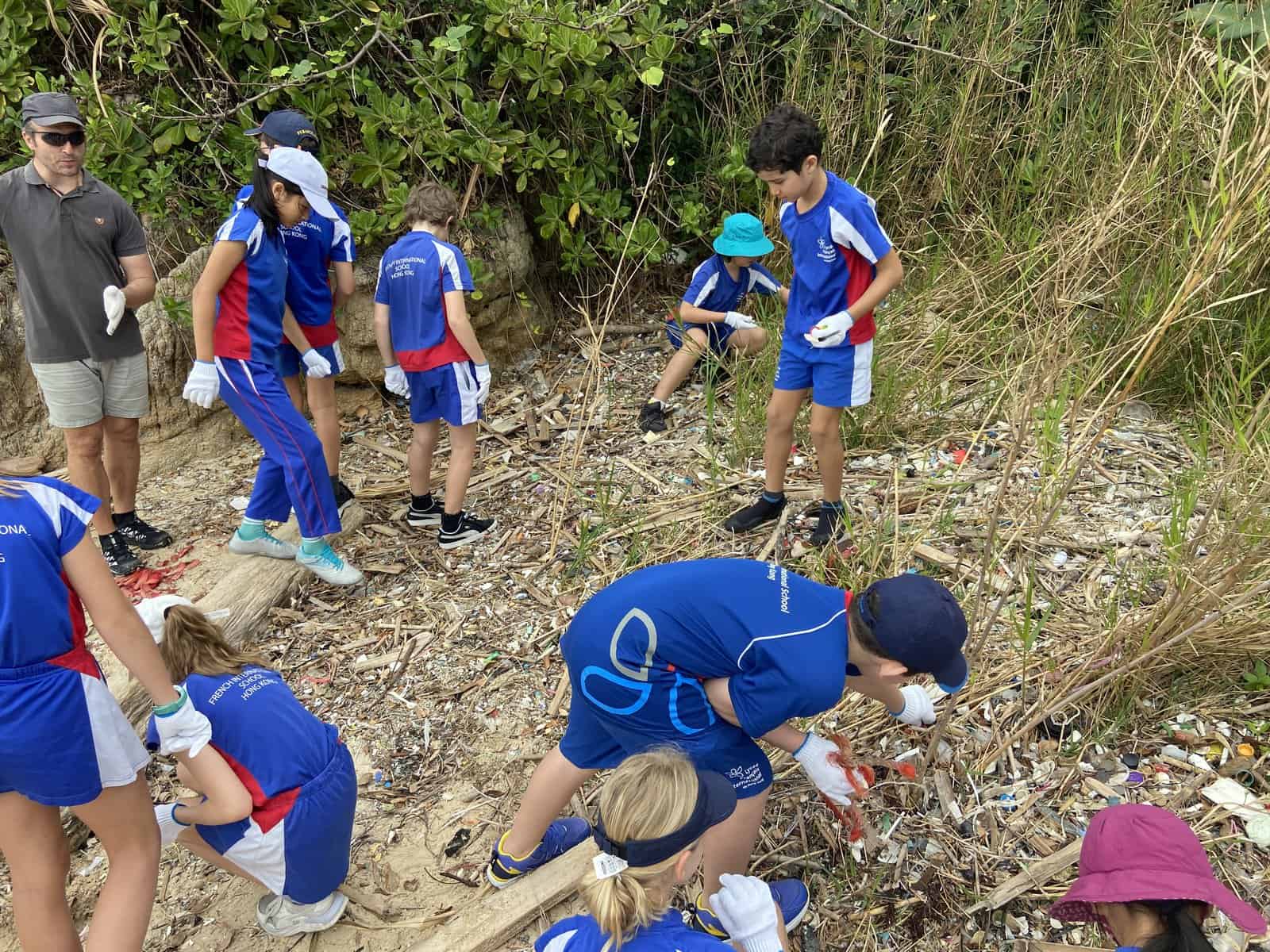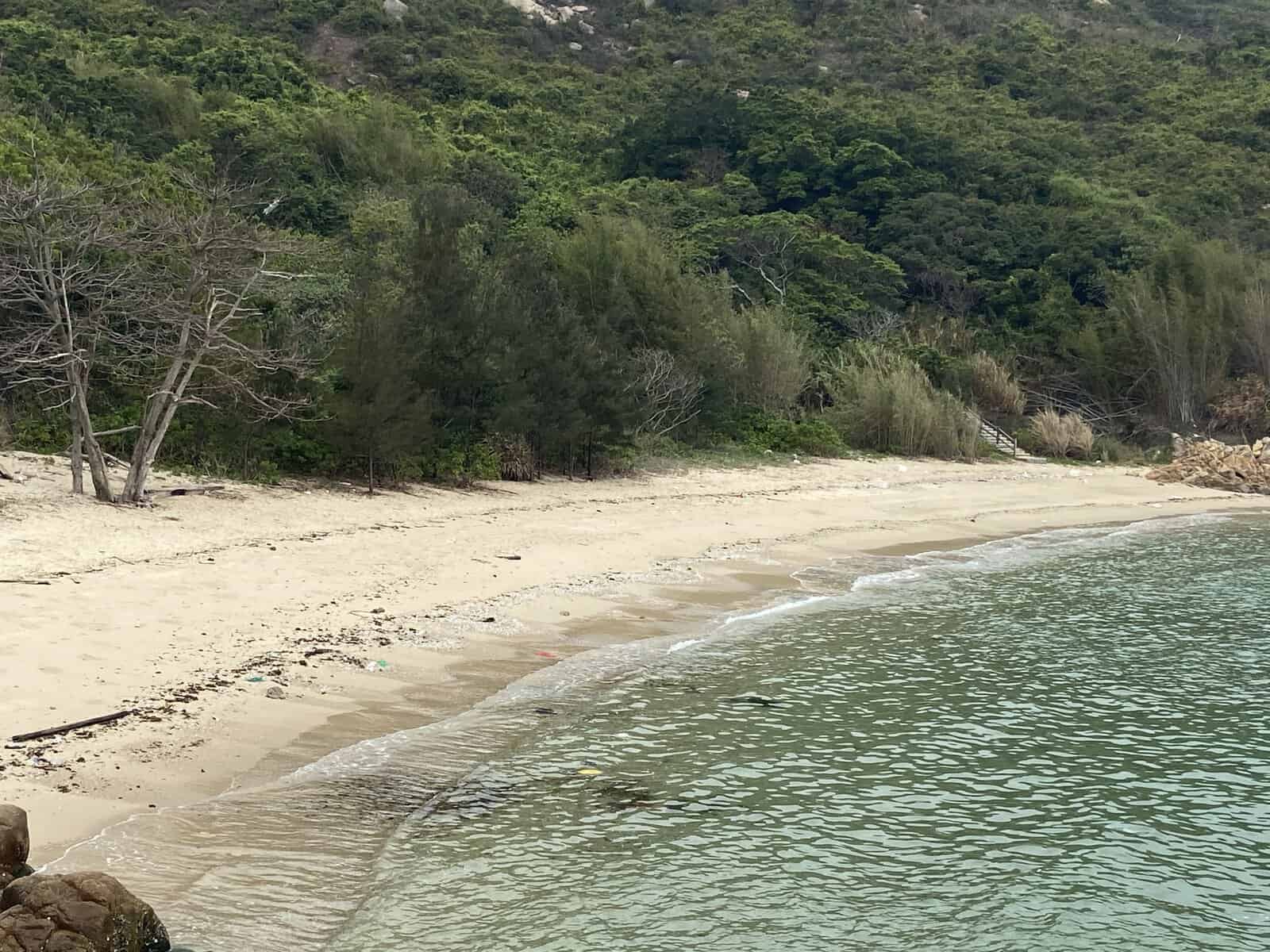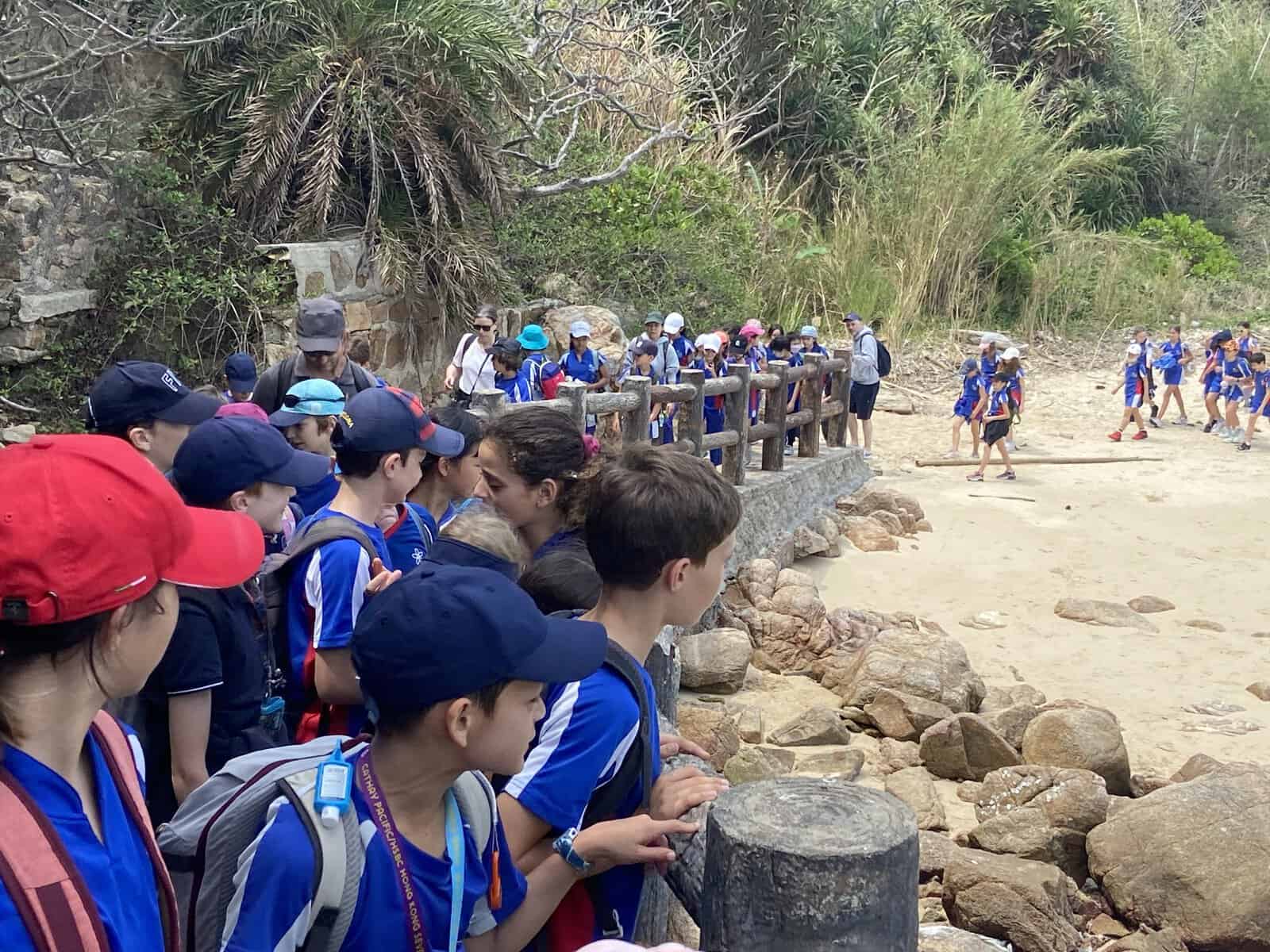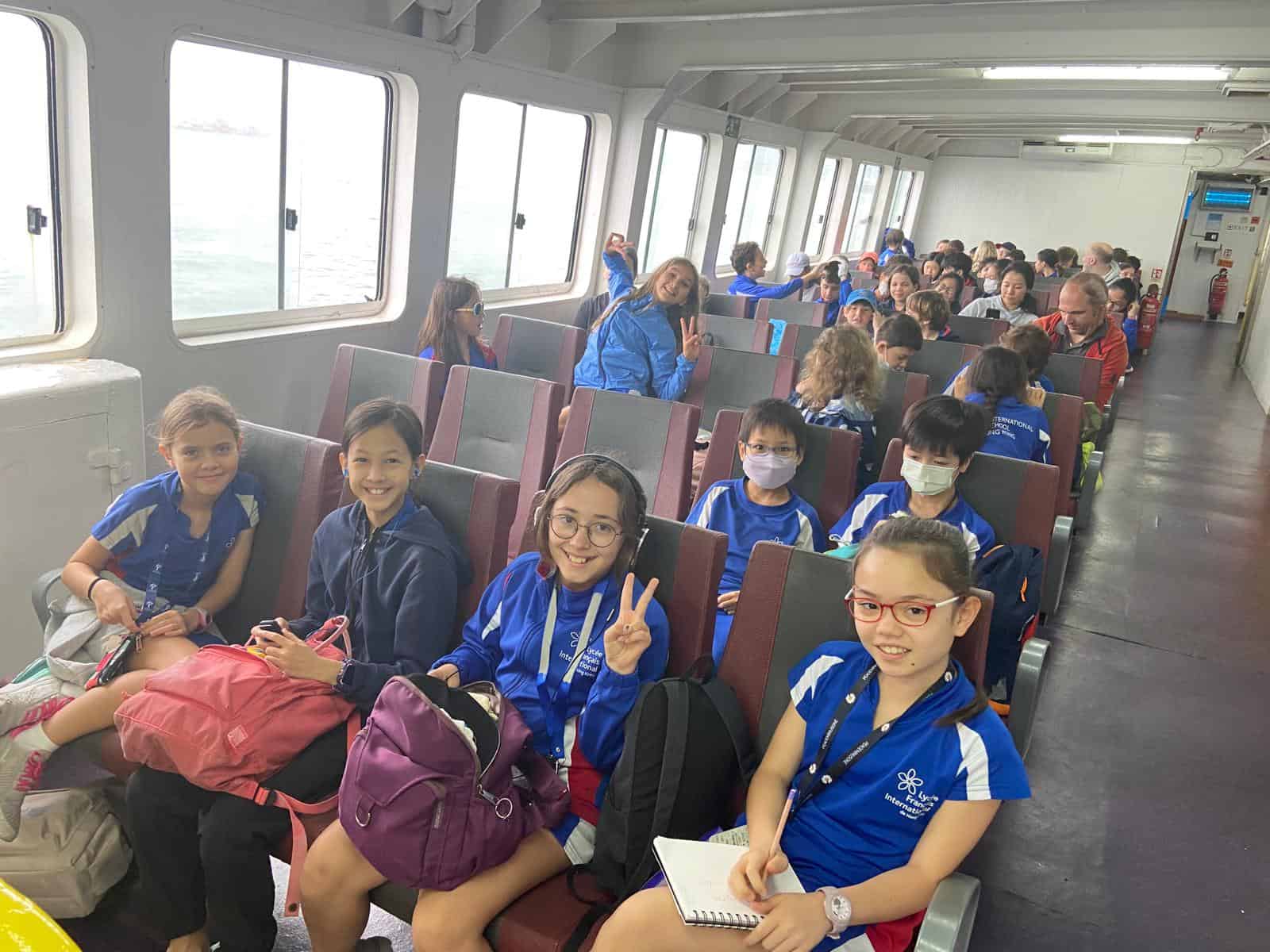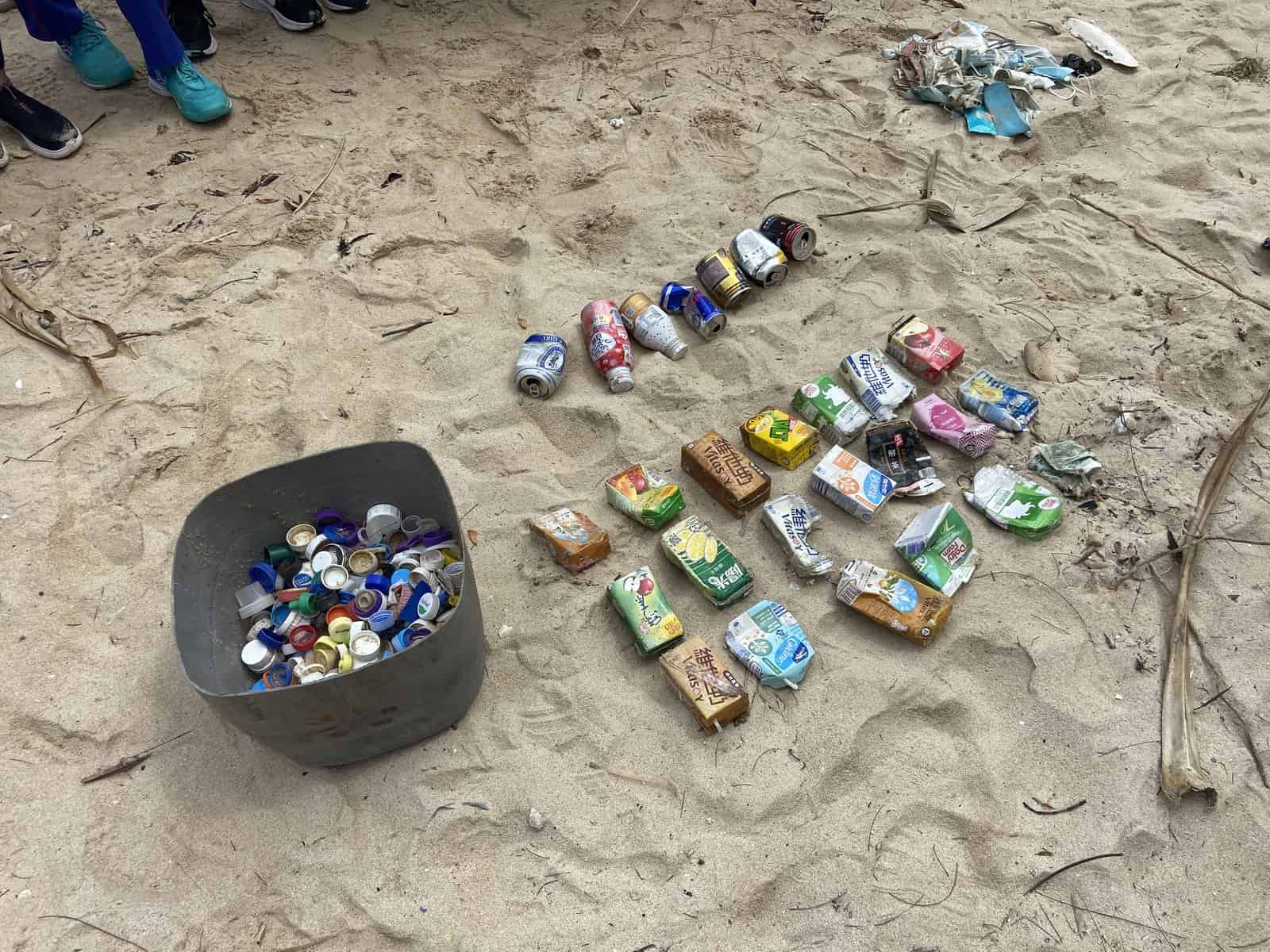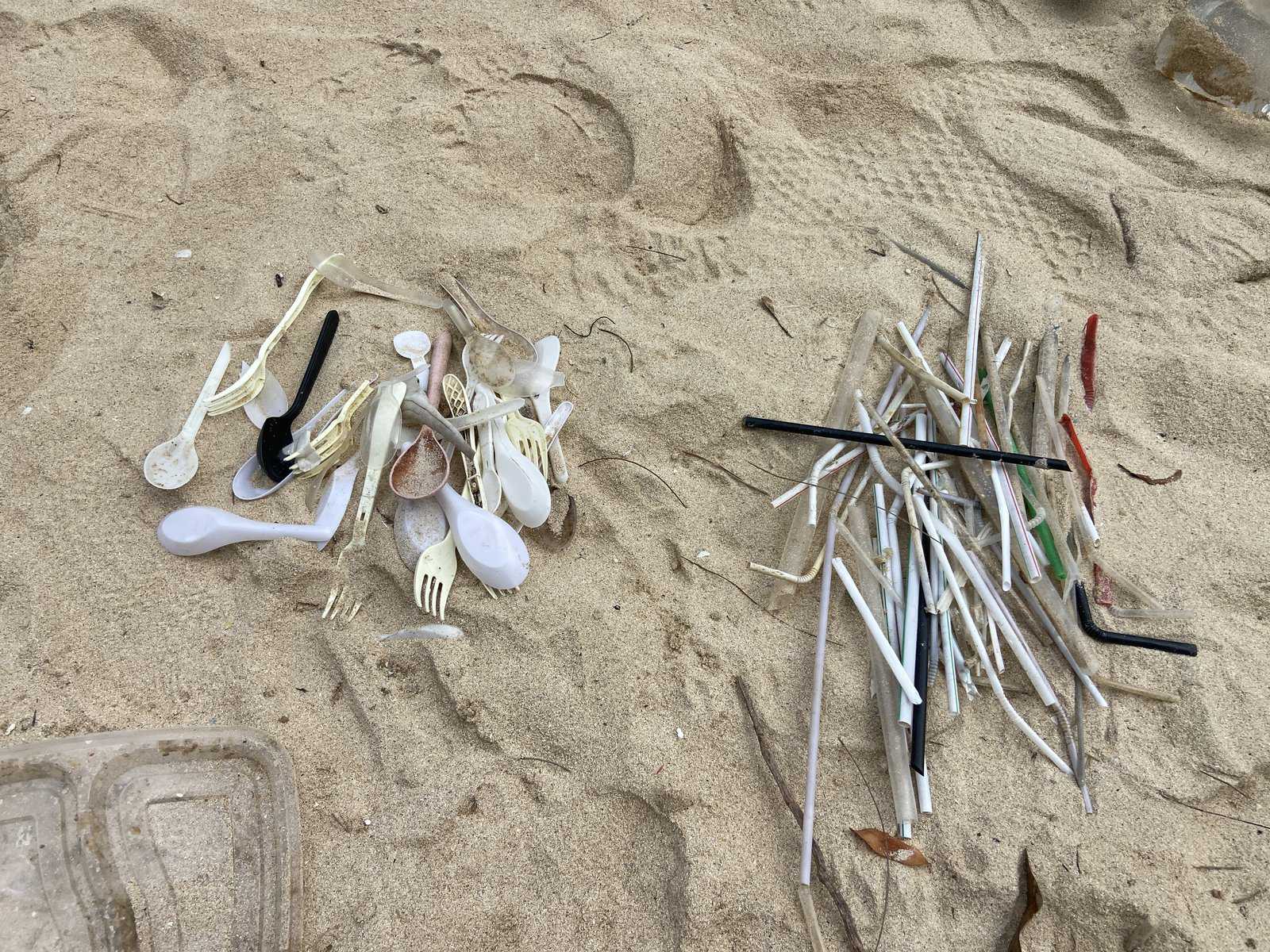CM2B and CM2F Beach Clean-up
A trip to Cheung Chau was the first big outing of our year in CM2! The focus was a beach clean-up on Coral Beach.
2 classes, 49 students, 4 parents, 2 teachers and 3 members of the Plastic Free Seas charity.
Here are the stats from the cleanup:
- 63kg total rubbish removed from the beach
- 68 plastic beverage bottles collected
- 48 plastic beverage bottles recycled
- 24 masks
- 81 straws
- 42 pieces of cutlery
Where does our rubbish come from?
- 57 plastic bev bottles from HK
- 10 plastic bev bottles from mainland
- 1 plastic bev bottle from Malaysia
We have some useful reminders that we would like you to share with the families.
1. Green@Community
Reduction is key, but we should recycle whenever possible what we haven’t been able to reduce. There are government-funded Recycling Stations, Stores and Spots in all districts across HK where you can trust that your recyclables will be handled properly. They accept paper, plastic including polystyrene, metal, glass, waste electronics, rechargeable batteries, energy-saving light bulbs and liquid cartons. And you can earn GREEN$ too, which you can exchange for small gifts.
2. Drinking Water and the Water For Free app
Choose filtered water instead of buying bottled water to reduce the plastic bottle waste. Consider purchasing a filter jug or a tap filter for your drinking water.
Download this app to find your closest water refill station. No need to have to buy bottled water if you run out.
3. Package-free takeaway and delivery
Pick up your takeaway instead of having it delivered and bring your own container. If you do get a delivery, check out food panda’s new reusable container programme on their website. Just search reusable containers on their app to find the participating restaurants and the meals that apply.
4. Package-free shopping
Shop at wet markets and package-free shops (BYO bag) to avoid packaging. A few examples are Slowood, Live Zero , Garden Artemis and Beyond Plastic. It’s not only fruit and veg that you can get at the wet markets, look for eggs, tofu, noodles, beans, rice and more.
5. 6 Simple Tips
You can find a poster of 6 simple tips here to help you reduce your plastic waste. You can also find more actions you can take here on our website.
- Bring a reusable water bottle everywhere you go
- Use a reusable food container
- Carry reusable cutlery with you
- Avoid polystyrene disposable food containers
- Say no to plastic straws
- Carry a reusable shopping bag with you
6. Masks
Although masks are no longer required by the government, some people are still choosing to wear masks in public. In order to reduce the waste from single-use masks, you can switch to a safe, reusable mask. Check out https://asia.enro.com/ for a reusable mask that filters like an N95 mask. (Plastic Free Seas has no affiliation with this company.)
Many thanks to Plastic Free Seas
